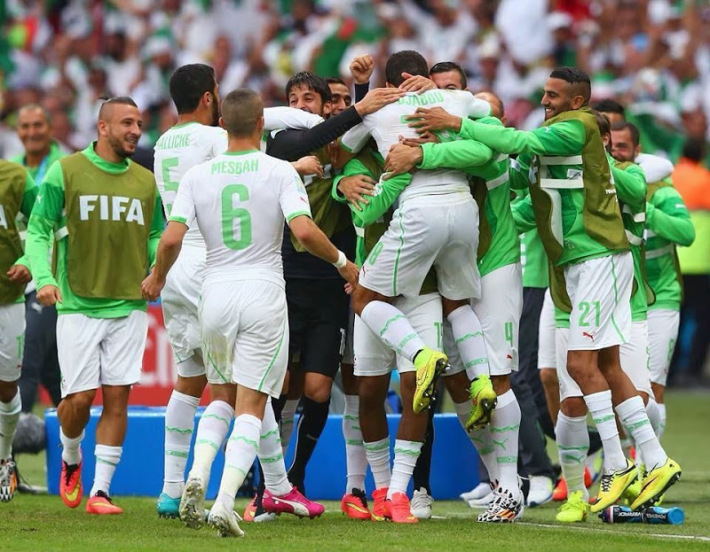Algeria’s African Identity Under Scrutiny Amid World Cup Pride
As Algeria continues to enjoy a wave of support during the 2014 FIFA World Cup, a sensitive question is resurfacing across parts of the continent: Does Algeria truly represent Africa?
On the surface, the answer seems obvious. Algeria, after all, is located in North Africa and is a full member of the Confederation of African Football (CAF). The Fennecs qualified for Brazil 2014 by navigating through the African qualifiers. Yet, statements from Algerian players over the years have raised eyebrows and triggered fresh debate about the nation’s sense of continental identity.
The controversy dates back to the 1982 World Cup in Spain, when Algerian football legend Lakhdar Belloumi made headlines by dedicating his side’s historic victory over West Germany “to the Arab world.” While the win was celebrated across Africa, Belloumi’s choice of words left many African fans feeling overlooked and underappreciated.
Fast forward 32 years, and another moment stirred a similar sentiment. After helping Algeria reach the last 16 for the first time in the country’s history with a draw against Russia, star midfielder Sofiane Feghouli declared: “This qualification is for all Algerians, Arabs, and all Muslims in the world.” Once again, Africa—the continent through which Algeria qualified—was notably absent from the dedication.
These remarks have reignited an ongoing identity debate not only about Algeria, but about the wider Maghreb region. Despite their geography, do North African nations truly feel a sense of belonging to Africa? Many critics argue that declarations like Feghouli’s suggest otherwise.
The irony is striking. Across the continent, from Dakar to Johannesburg, millions of African fans have rallied behind Algeria’s campaign. The Fennecs’ performances have stirred continental pride, even as many in the Arab world have remained largely indifferent to the team’s journey. Meanwhile, some African football observers question why a nation that seems reluctant to embrace its African identity continues to compete in African competitions.
Some have even suggested a more radical path, such as joining another confederation. Israel, for example, plays in UEFA competitions despite its location in the Middle East, a decision driven by complex political and cultural realities. Could Algeria, if its identity aligns more with the Arab or Muslim world than with Africa, seek a similar realignment?
In truth, such questions strike at the heart of cultural, political, and historical complexities. While the remarks by Belloumi and Feghouli may have been spoken in moments of emotional pride, they still leave many African supporters feeling excluded.
Ultimately, Algeria remains, geographically and institutionally, part of Africa. And as long as the Fennecs fly the African flag at international tournaments, the continent’s support is likely to continue—though perhaps with a touch of lingering disappointment.
ALGERIA-GERMANY, NIGERIA-FRANCE: CAST YOUR VOTE FOR AFRICA!
Vote Here











